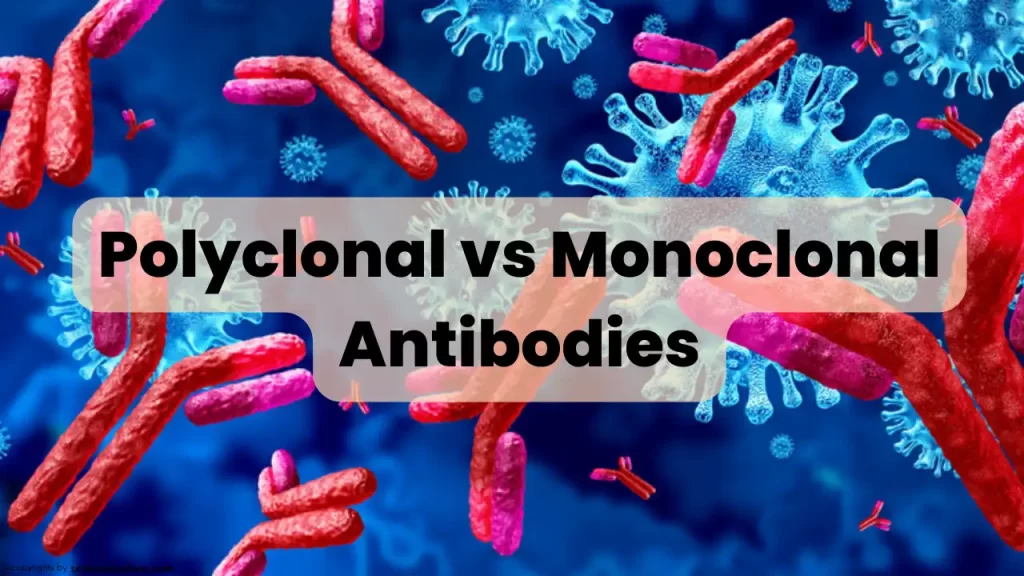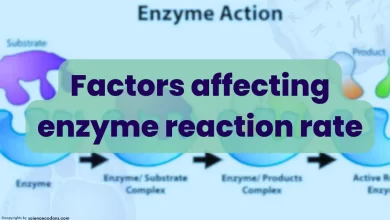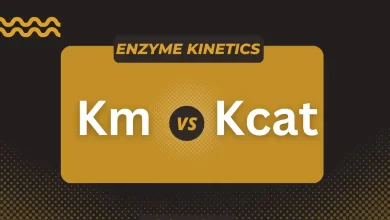
Monoclonal and polyclonal antibodies are two distinct types of antibodies that vary in production and specificity. Here are the main distinctions between the two:
| Characteristics | Polyclonal | Monoclonal |
| Produced by: | Many B-cell clones | A single B-cell clone |
| Bind to: | Multiple epitopes | A single epitope |
| Antibody class: | A mixture of different Ab classes (isotopes) | All of a single Ab class |
| Antigen-binding sites: | Different antigen-binding sites | All antibodies have the same antigen binding sites |
| Cost | Less expensive | More expensive |
| Yield | Limited supply | Infinite supply |
| Potential for cross-reactivity | High | Low |
| produced | Easily, Rapidly | Time consuming, More technical skill |
Production: Polyclonal antibodies are produced by injecting an antigen into an animal, producing a diverse population of antibodies with varying paratopes specific to the antigen. Monoclonal antibodies are created by fusing a single B-cell with a myeloma cell, resulting in a uniform population of identical antibodies with one paratope.
Specificity: Polyclonal antibodies are not specific to a single epitope and can bind to multiple epitopes on an antigen. Monoclonal antibodies are epitope-specific, meaning they can only bind to one epitope on an antigen.
Cross-reactivity: Polyclonal antibodies are more likely to cross-react with similar antigens, whereas monoclonal antibodies have minimal cross-reactivity.
Polyclonal antibodies are more likely to have background noise, whereas monoclonal antibodies have minimal background noise.
Polyclonal antibodies exhibit much variability, whereas monoclonal antibodies are consistent across lots.
Polyclonal antibodies are cost-effective and can be produced quickly, whereas monoclonal antibodies are expensive to develop and take longer to produce.
Difference between monoclonal and polyclonal antibodies
| Polyclonal antibodies | Monoclonal antibodies |
| Produced by different clones of plasma B cells | Produced by a single clone of plasma B cells |
| Bind to multiple epitopes on the same antigen | Bind to a specific epitope on the antigen |
| Have increased cross-reactivity with similar antigens | Have low cross-reactivity with similar antigens |
| Have high background noise | Have low background noise |
| May vary in a lot | Are identical in lots |
| Inexpensive and quick to produce | Expensive and slow to produce |
| It can be used for detecting a range of targets but may also have nonspecific binding. | It can be used for various purposes, such as detecting a specific antigen, staining cells with less background, quantifying protein expression, and detecting changes in molecular conformation. |











